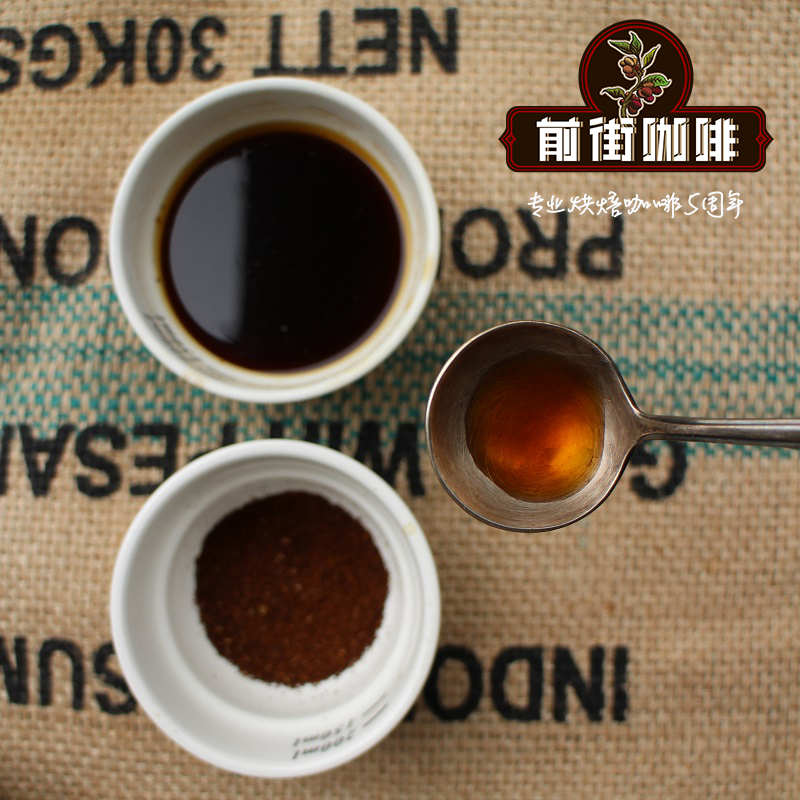Cqi Coffee tasters Coffee what does cqi mean? how to test the coffee tasters?

Professional coffee knowledge exchange more coffee bean information please follow the coffee workshop (Wechat official account cafe_style)
Founded by SCAA in 1996, the Coffee quality Association (Coffee Quality Institute, referred to as CQI) is an international non-profit organization dedicated to improving coffee quality and the living standards of coffee producers. Its early name is the Fine Coffee Institute (Specialty CoffeeInstitute). Ted, the former SCAA executive director who is actively involved in promoting Yunnan Coffee. Mr. Ted Lingle is one of the founders of CQI. In fact, for quite a long time, the outside world can regard SCAA and CQI as a whole.
In China, CQI is known mainly for its organization of the globally recognized coffee Q Program, which issues the famous QGrader certificate-quality appraiser of fine coffee (Q Certificate for short). Many coffee practitioners will get a Q certificate as a small goal of their career, but in fact, the work of the society is not limited to this.
First of all, CQI mainly focuses on the coffee producers in the upper reaches of the industry. When we go to CQI's website, we will find that it always focuses on individual farmers around the world, especially those ordinary farmers who are cash-strapped and female coffee producers who are more in need of help. It is the main mission of CQI to increase their income and consider their interests. Second, CQI believes that improving the quality of coffee and allowing coffee to sell at a higher price is an important way for farmers to increase their income, rather than relying on extensive production in the past. But the problem is that the vast number of farmers precisely lack the conditions, channels and means to do this. As a result, CQI solves this problem through a well-designed rating, education and training and quality certification system-the Q project.
CQI's Q project, which began in 2003, is used to train coffee producers and certify coffee quality. it is the most important and widely recognized international quality certification standard for boutique coffee, with strong reliability and practicability. In the past, Q project only aimed at Arabica boutique coffee (Q Arabica). In recent years, with the great improvement in breeding, planting, harvest and processing, more and more robusta coffees show charming flavor, and Q Robusta, which is looking for high-quality Fine Robusta Grade, also came into being and began to attract attention.
We can think of the CQI organization and its website as a platform with professional credibility and a bridge between Cannon and end buyers. Those quality coffee beans with Q certification are on display, and there is a stage to stand out from major coffee commodities and get highlights, which can be seen by buyers all over the world. As a result, producers of Q-certified coffee have more opportunities to earn higher income.
It is worth mentioning that CQI's Q project relies on its certified national partner (In-CountryPartners, referred to as ICP) to carry out. It is very easy for coffee producers to participate. After online registration, they can send samples of raw coffee beans to the designated ICP. ICP then distributes the samples to three local CQI certified quality appraisers for blind testing and writing the evaluation report, the whole process will be kept secret to ensure fairness and fairness. After raw bean evaluation, baking and cup testing, if the sample meets the standard, it will be awarded Q certification, entered in Q database and published for display. If the sample fails to meet the standard, the producer will also receive a technical report from CQI to make it easier to know the deficiencies.
CQI's Q project is both imaginative and ambitious, and its smooth implementation depends on a large number of excellent coffee people endorsing it. Promoting education and training certification is undoubtedly the best way. For practitioners, if they want to have the ability and qualification to evaluate raw bean samples, they need to attend at least 6 days of training and a series of examinations to become a QGrader. Examiners who are authorized to organize training, conduct examinations and issue certificates on behalf of CQI are called QINSTRUCTORS, which is more difficult. At present, CQI's Q INSTRUCTOR includes Arabica, Robusta and Processing. Based on this, a set of meticulous Q system will operate in an orderly manner.
Important Notice :
前街咖啡 FrontStreet Coffee has moved to new addredd:
FrontStreet Coffee Address: 315,Donghua East Road,GuangZhou
Tel:020 38364473
- Prev

Coffee tasters: learn how difficult it is for coffee tasters to know qgreder Coffee Q
For more information on coffee beans, please follow the coffee workshop (Wechat official account cafe_style) in the catering industry, the general saying is that the chef determines the taste of the food, and the concept seems to be the same when it comes to fine coffee: baristas are the key to determining the final flavor of coffee. This is actually not quite true. Compared with chefs, baristas can do it on the bar.
- Next

Historical stories of Brazilian Coffee producing areas introduction to the production time of Brazilian Coffee beans
Professional coffee knowledge exchange more coffee bean information please follow the coffee workshop (Wechat official account cafe_style) Brazilian coffee characteristics of Brazilian coffee generally refers to the coffee produced in Brazil. There is a wide variety of Brazilian coffee, the vast majority of which are unwashed and sun-dried, classified according to the name of the state of origin and the port of transport. Brazil has 27 states and 17 states produce coffee, but its
Related
- Beginners will see the "Coffee pull flower" guide!
- What is the difference between ice blog purified milk and ordinary milk coffee?
- Why is the Philippines the largest producer of crops in Liberia?
- For coffee extraction, should the fine powder be retained?
- How does extracted espresso fill pressed powder? How much strength does it take to press the powder?
- How to make jasmine cold extract coffee? Is the jasmine + latte good?
- Will this little toy really make the coffee taste better? How does Lily Drip affect coffee extraction?
- Will the action of slapping the filter cup also affect coffee extraction?
- What's the difference between powder-to-water ratio and powder-to-liquid ratio?
- What is the Ethiopian local species? What does it have to do with Heirloom native species?

